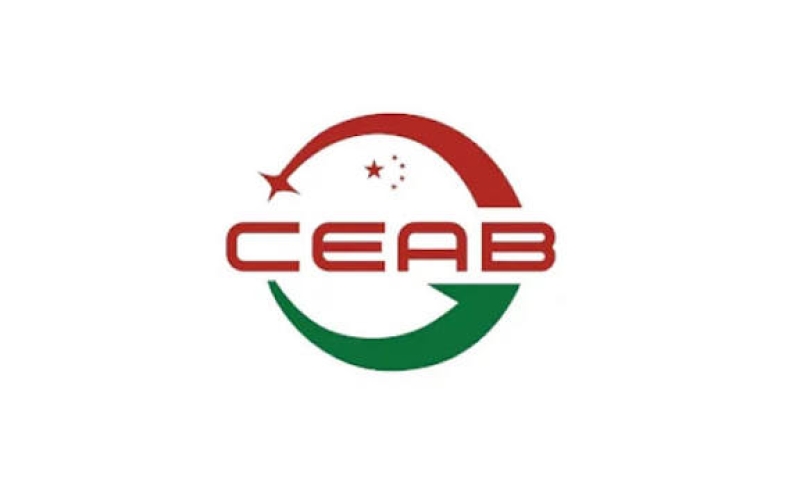- Dhaka records unhealthy air quality on Sunday morning |
- Govt letter to EC to hold election, referendum on same day |
- COP30 boosts funding for at-risk nations but avoids firm fossil fuel terms |
- When To Worry over Ceiling & Wall Cracks After An Earthquake |
- Stock market rebounds, DSEX gains 166 points over week |
Bangladesh-China trade relations set for rapid expansion: CEAB President

Bangladesh-China trade relations are set to enter a new phase of expanded cooperation, diversified investments and deeper industrial linkages over the next decade as both countries adapt to shifting global economic realities.
In an interview with BSS, Chinese Enterprises Association in Bangladesh (CEAB) President Han Kun said that the future course of bilateral economic engagement would be shaped by improved policy consistency, greater investment facilitation and sustained efforts to reduce bureaucratic bottlenecks.
He described Bangladesh as an increasingly important economic partner for China, saying that cooperation had already moved beyond conventional trade and infrastructure to broader sectors including technology, culture and innovation.
Han said trade between the two nations would not only grow but become more refined and efficient.
Bangladesh, he said, currently imports large volumes of machinery, raw materials and industrial inputs from China. "As Bangladesh's manufacturing and industrial capacity gets stronger, we expect to see more sophisticated semi-finished and finished products being exported from Bangladesh to China," he said.
"This transition will reflect the maturity of Bangladesh's industrial base," he added.
The CEAB President said improvement of logistical and infrastructural connectivity will also support this transformation.
After years of cooperation in conventional megaprojects such as bridges, highways and power plants, the two sides are now moving into more advanced sectors including expressways, mass rapid transit, smart water management and digital infrastructure.
"Co-investment in modern infrastructure will elevate Bangladesh's social and economic development to the next stage," he said.
Highlighting the rising importance of cultural and creative industries, Han observed that China's fast-growing cultural economy-comprising movies, entertainment and digital content-offers new avenues of cooperation.
"Culture is now closely linked to economic activity. Enhanced cultural exchange between our peoples will deepen mutual understanding and broaden business opportunities," he added.
Han also urged both governments to accelerate work on a potential Free Trade Agreement (FTA), stating that it would be "a game changer" for Bangladesh's export competitiveness.
While Bangladesh has already advanced economic partnership negotiations with other countries, he pointed out that progress with China has been relatively slow.
"Bangladesh should understand that the FTA has two halves," he said. "The first half is about imports, but the second half is about Bangladesh positioning itself as export hub to export to global market by leverage China's competitiveness in technology, equipment, material and semi-product, etc. Bangladesh can be transformed into a global export centre," he said.
He welcomed the recent progress allowing fresh Bangladeshi mangoes to enter the Chinese market and expressed hope that jackfruit and other agro-products would soon follow. Han encouraged Bangladeshi entrepreneurs to identify more export-worthy items through innovative approaches.
He described Bangladeshi entrepreneurs as "highly energetic and full of ideas," often comparable to the most dynamic regions of China. He said this entrepreneurial spirit needs stronger infrastructural and regulatory support to translate innovative ideas into sustainable business ventures. "The government must build platforms where these ideas can become real businesses," Han said.
The CEAB President predicted that bilateral trade and investment will expand substantially, supported by cooperation in manufacturing, high-tech sectors, digital services and environmentally sustainable projects.
"The next decade will bring an optimized, mutually beneficial partnership. Both countries will gain economically and socially," he said.
Bangladesh's trade imbalance with China continues to escalate, driven by persistent higher imports of essentials for its industries from the country's top import destination.
On the other hand, Bangladesh's exports to China remained almost stagnant in recent years despite having duty-free market access there.
The central bank's latest data from the fiscal year 2019-20 until September of the FY 2025-26 showed that Bangladesh's imported goods from China ranged between $11 and $20 billion annually against its exports amounting to $500 to $600 million, reports BSS.

